When the Internet first became commercially available, there was no information on metal available save a handful of ASCII files and Megadeth, Arizona. A few brave souls challenged that by writing about metal and thus creating an information stream focused on the art, and not the marketing of the art as was all other information on the topic, having a corporate origin (this condition continues today, with the added complexity that most metal sites simply repeat said corporate information and slap the label “underground” on it). One of these brave souls was Brian N. Russ, who created BNR Metal Pages with a simple mission: to reflect his opinions about the better metal bands out there. Over the years, millions have read and loved this site for its simplicity and candor. Brian was kind of enough to come by the ANUS command bunker and chat a bit about his motivations, methods and metallic ambitions…

What inspired you to start the site, and what made you think, “I’ll do a database, instead of a reviews or pictures site”?
First, I’ve always had a mind for statistics and trivia, in both music and other areas (for example, sports statistics and fantasy football), so coming up with a database and learning all sorts of useless facts about bands fascinated me. As it turns out, when I was in graduate school in the mid-eighties, one of my programming projects was implementing a database, and in fact I used some of my metal knowledge back then as testing data. Long after that was done, I continued accumulating data, without really knowing what to do with it until the WWW sprouted up in the mid-nineties. Finally, I noticed at the time (as well as now) there are many more well-done reviews sites than database sites (though some other good database sites have come online in recent years), so I thought I could develop my own little niche in the metal world.
What was the hardest part of getting it going? Did you face any technical hurdles back then?
Once I learned simple HTML, the process of generating the pages from my database was pretty straightforward. And back in the early days before everyone had a .com place to host their stuff, I had an affiliation with my university, and they allowed me to host the pages there, which was very easy to do. So, there weren’t a lot of technical hurdles there. My struggles have usually been trying to find ways to keep the site looking good — not too plain, not too flashy. I don’t have an artistic background, so it’s hard to make the site look just the way I might like it.
What’s your own favorite era and genre of metal? Has this changed over the years?
The 80’s will probably always be my favorite era of metal. Of course, I’m not talking about the popular view of 80’s metal (glam/hair stuff), but the 80’s was when metal was still new to me — there were so many new bands with new sounds to listen to. So, from a nostalgia point of view, that era will always be my favorite.
As for favorite genre, right now my favorite bands are often the ones that don’t neatly fit into any one genre. When some talks about a metal band and uses phrases like “eclectic” or “avant-garde”, I am interested. This might be partially because I’ve heard everything else for so long, and/or because that’s what my tastes have evolved to, for whatever reason. In general, I’m not sure any one genre really stands above the others to me, though some (doom and thrash, perhaps) might be slightly above others.
You have been accepting of Christian metal bands while most other metal sites are not. Can you tell us a bit more about your philosophy of defining Christian metal as a separate genre? (Note: this is not an adversarial question – I think something “objectively” vital will emerge from it)
To me, it’s really the music itself that defines a musical genre more than lyrics. Therefore, bands with Christian lyrics are really no more or no less “metal” than bands with non-Christian lyrics. I’m not a Christian in the church-going sense, but I see no reason to disregard Christian bands just based on their image. Along those same lines, I find it slightly disturbing that certain Christian bands/fans isolate themselves from the secular world. I’ve found some Christian bands to have good things to say lyrically (which is great), and others that seem to be using their music solely as a marketing/recruiting tool (which isn’t great), but even those bands in the latter group still should be considered metal if they sound like metal.
To be more specific about your question, I don’t really consider Christian metal its own genre. I list it as such on my site, but only for convenience for readers, who read about a particular band and may wish to find others in the same vein. But really, it shouldn’t be a separate genre. I’d rather refer to Stryper as a pop metal band and Tourniquet as a thrash/death band rather than just calling them Christian bands.
What, in your mind, defines metal, and differentiates it from other popular music genres?
First, as I alluded to above, it’s not the lyrics. To me, it’s the “image”, but not image in the lyric or visual sense. There is a certain mood that is conveyed with most metal bands, a dark (I’d almost use the word “evil” here, but that’s a bit too simplistic) mood that resonates from metal. I’m anything but dark, evil, or angry, but yet it’s those moods that fascinate me about metal music. Certainly, though, there are bands that are on the fringes of what is commonly accepted as metal, and so it’s difficult to impossible to define metal just by listing bands that play it.
How often do you update the site, and what tools do you use (ex: Notepad)?
I now update the site roughly once a week. As it now stands, the information itself resides in several text files (representing, in a sense, crude database files, derived from the programs I wrote ages ago that I talked about above), and I edit those using vi, the UNIX programming editor that I learned so many years ago and still use in my profession (as a software developer) now. I’ve written programs/scripts that have evolved over the years, but whose function is the same — read the text files and output HTML. After that, it’s just a matter of packaging up the files (winzip) and uploading them to the site. Thankfully, this part of the process is far less time-consuming than writing the band descriptions and so forth.
Do you have any idea how many people visit on an average day? Do hits pick up over the weekend?
Unfortunately, no. This is partially due to my dissatisfaction with my current web provider, as I have had difficulties with them in regards to bandwidth/disk space issues and providing me with useful administrative tools. Though, to be fair, I just haven’t had the time to go back to them and sort the whole thing out, so as long as the site is up, I’m happy. I need to rectify this someday.
You tend to write summaries of a band’s sound, ideas and history all wrapped into one, then list albums with data only. Why did you decide to use this highly-efficient format, instead of writing about each CD individually?
It wasn’t really by design, it just sort of ended up that way. When the site first went online (1995), the reviews were a bit more personal and less information/history based, and over time I’ve adjusted it to be more objective. If I had more time, I’d probably broaden the descriptions to discuss individual CDs more in depth.
Looking at your top ten lists, it seems your tastes vary widely within the genre. What else do you listen to besides metal? What do you look for in a metal band that makes it a winner for you?
Actually, I rarely listen to anything other than metal, at least as far as buying non-metal albums goes. There are a couple of exceptions, and I’ll throw out two bands that I’ve enjoyed before — Crystal Method and Portishead. To me, though, the range of metal styles is so great that I can listen to bands from across the board and not feel like I’m “just” listening to metal all the time.
As I mentioned above, bands that are off the beaten path are often winners for me. That’s not an absolute — there are some bands that (though original and unique) don’t appeal to me, and there are a few completely unoriginal bands that somehow click. But after listening to metal for so long, it’s the bands that are pushing boundaries that I usually like best. A great example is the band you’re just about to ask about…
I’m bummed as hell to hear that Kong disbanded. Do you think there’s a value in listing such obscure bands alongside mainstream ones, and do you know of any people who’ve gotten into them from your review and listing?
I think there is such a value, and yes, I have received emails from people who read about Kong on my site, checked them out, and thanked me for the recommendation. That’s a great feeling. It is too bad they broke up, though their direction on the later releases led me to believe they probably wouldn’t last forever. The best bands never do…
You seem to like hardcore, but not metalcore. Is there a reason?
I’m not really a fan of either. It’s mostly just that I don’t like that vocal style. I used to dislike most extreme vocal styles, but over time I’ve come to accept death growls and even like black metal singing, but monotonous shouting just doesn’t do it for me. This gets back to the mood that one hears/feels when listening to metal — two words that at least begin to describe metal moods are “evil” and “angry”, and for me personally, I greatly prefer the former mood in the music I listen to.
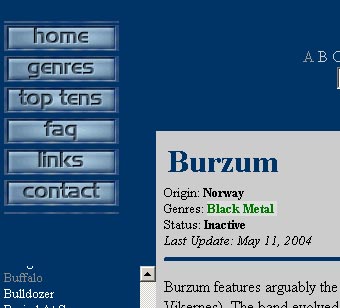
Do you feel it is possible for bands to “sell out”? If so, “how”?
I think it is possible, but I don’t think it happens nearly as often as many seem to believe. Every time a band comes out with an album that changes their style even slightly from their previous work, accusations of sellouts are everywhere. I just don’t think that’s usually the case. To my mind, if you’re a musician who likes and plays a particular form of music (you might even attain some level of success with that music), and then you radically change your music with the sole purpose of making money, then you’re selling out. If a band explicitly and obviously jumps on the current bandwagon to follow whatever trend is in vogue that day, that can be selling out. But it’s difficult to prove one’s motivations. Let’s say I play in a traditional thrash band, and my new album comes out, and it’s a metalcore album, which just so happens to be the thing to do right now. Am I selling out? Maybe, maybe not. It’s certainly possible and reasonable that I enjoy this new metalcore music, and my own new music reflects that. If that’s the case, that’s not really a sellout. So I’m sure it happens, but it’s probably not as prevalent as the accusers would have you think.
Where do you think metal will go, once black metal finishes fading away and metalcore is no longer trendy?
For some time I had guessed that electronica and programming and industrial influences would become more prevalent. It still might happen. I can’t say I predicted the past trends (nu-metal, grunge, metalcore), so it’s hard for me to say what the future will hold.
Do you think you’ll listen to metal your whole life? Even in the retirement home/old age?
For awhile I thought I would, and then there was a period where I figured it’d only be a matter of time before I’d move on to something else. But I think I will always listen to some form of metal, though probably not the most popular or basic forms of it.
You don’t seem to be very fond of black metal. Any reasons you’d like to give here? (Although, notably, you did pick out Enslaved to like, which suggests a sharp eye for musicality)
Actually I don’t think that’s really true. Certainly, when it first became a legitimate genre, I wasn’t on board. I’d heard a few of the early bands and thought they were sloppy. The vocals turned me off. The corpsepaint really turned me off. I pretty much ignored the bands and listened to other forms of metal. Over the last several years, I’ve changed my stance. I’m still not a fan of the real old-school raw stuff, but if you look at my recent top ten lists, you’d see several bands that at least have some basis in black metal, though perhaps not in the traditional sense. I can tell you this — I’d much rather listen to an average black metal band than an average metalcore band, or an average power metal band, or an average death metal band. Hey, just the other night I was quite enjoying newer albums by Gehenna and Carpathian Forest, so I don’t think it’s accurate to say I don’t like black metal now.
In what ways do you wish metal fans/the metal community would change? Have you been able to do anything to effect that change?
There is some close-mindedness in the metal community, and some immaturity. That’s one reason I don’t have a discussion forum on my site — every time I go read someone else’s, there are immature flame postings and the like polluting everything. I’m not sure there’s anything I can do about that…
When’s the Assuck page coming? ;)
Here’s the thing. As much as I try to be organized about how I manage the site, bands fall through the cracks. I’ll listen to a band for awhile, get the basic info researched, and for whatever reason, forget to follow through, due to the sheer number of bands I’m researching at any given time. That’s what’s happened here, as well as too many other bands for me to admit to. I’ll see if I can get it done finally!
I don’t know if this is rampantly unprofessional of me or not, but can you talk about some of the metal websites that were around during “the early days,” and what you thought of each in terms of its method of organizing information about metal?
I don’t think it’s unprofessional, but I’m honestly having a hard time remembering what sites were around in 1995. Most of the sites I look at now aren’t that old. I do remember thinking that there really wasn’t a site that really did a great job with discographies and lineups and the like. Nowadays there are other sites, bigger than mine, that do that, though I hope that my site is still relevant in that area. I probably had some complaints about cheesy graphics that some sites used (and still use), such as rotating skulls or the famous dripping-blood horizontal bar (hope I’m not stepping on toes there!).
Is your site designed to help research, or fans? Who do you envision as the average user of your site?
The best emails I’ve gotten are from nostalgic fans, who remember listening to metal long ago, somehow stumbled across my site, and went back to listen to their old albums. That’s great, though that’s probably not the typical reader. Many use my site as a reference, or as a first option toward getting an opinion on a new band. By no means do I think my opinion is best, always right, or the only opinion out there, but I’d like to believe that, given my experience and love of metal, that my opinion is worth hearing. Of course people disagree with me on certain things (most often, what bands/sub-genres do or do not belong on my site), but it wouldn’t be right if there was no disagreement.
The one most relevant [cultural factor] here is language. In general, scientific discourse adopts as its ideal univocality — one word, one meaning. Closely related to this goal is the belief that a language exists, or can be forged, that is purely instrumental. Clearly and unambiguously, it will communicate to the world what the speaker or writer intends to say. Roland Barthes (Rustle) has ironically called this the belief that science can own a slave language, docile and obedient to its demands. Anyone who has seriously studied how language works is aware, however, that it shapes even as it articulates thought. There is now an impressive body of work exploring how metaphors, narrative patterns, rhetorical structures, syntax, and semantic fields affect scientific discourse and thought…language is not a passive instrument but an active engagement with a vital medium that has its own currents, resistances, subversions, enablings, pathways, blockages. As soon as discovery is communicated through language, it is also constituted by language.
– N. Katherine Hayles, Complex Dynamics in Literature and Science, p. 5 (1991)
BNR Metal Pages
The Former Home of BNR Metal Pages
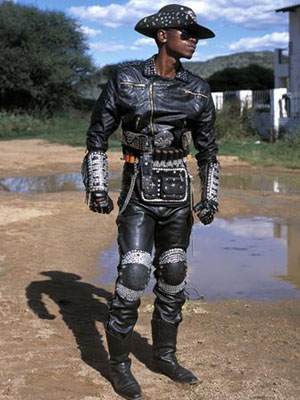 While Botswana is perhaps best known for its wildlife reserves, a burgeoning counter-culture is painting a very different image of the small south African country.
While Botswana is perhaps best known for its wildlife reserves, a burgeoning counter-culture is painting a very different image of the small south African country.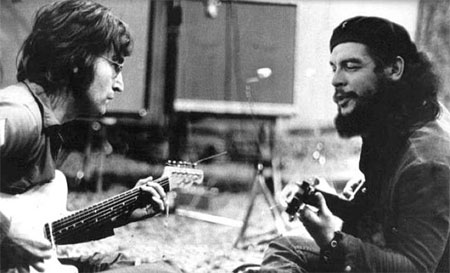
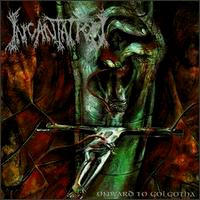 People love to talk about music. A story about Ken Caillat’s new book covering the inside story behind the Fleetwood Mac album, “Rumours,” had several readers gushing about their own favorite albums. Seems there are all kinds of “perfect albums” for all kinds of tastes.
People love to talk about music. A story about Ken Caillat’s new book covering the inside story behind the Fleetwood Mac album, “Rumours,” had several readers gushing about their own favorite albums. Seems there are all kinds of “perfect albums” for all kinds of tastes.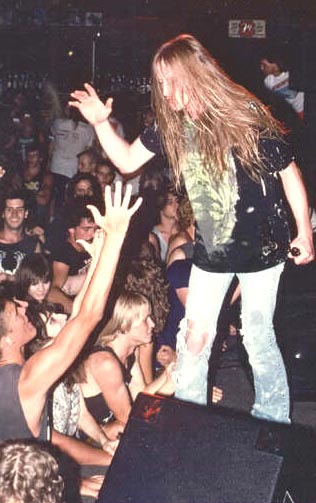 You are writing a book on your experiences, including rigor mortis. How does writing compare to music writing?
You are writing a book on your experiences, including rigor mortis. How does writing compare to music writing?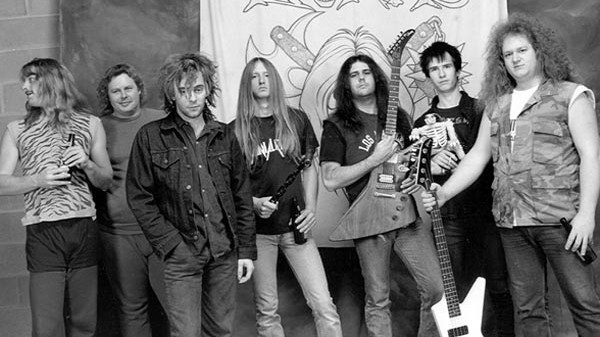
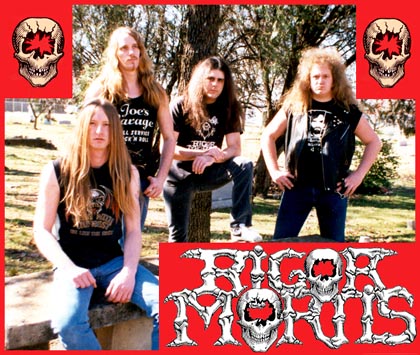 If you did form a metal band again, what kind of music would you make?
If you did form a metal band again, what kind of music would you make?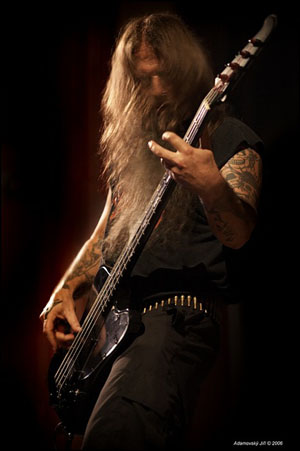
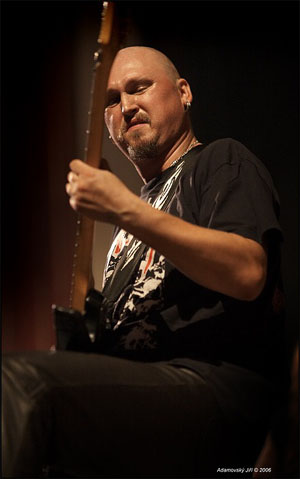
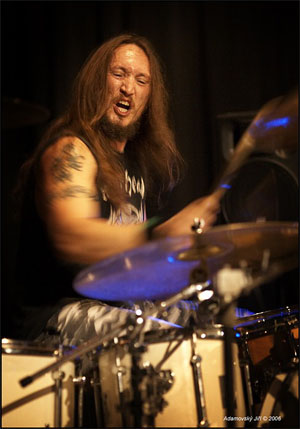
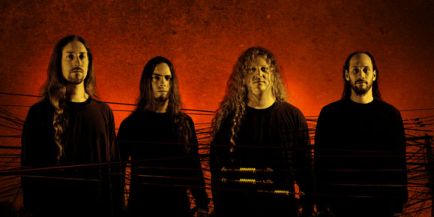
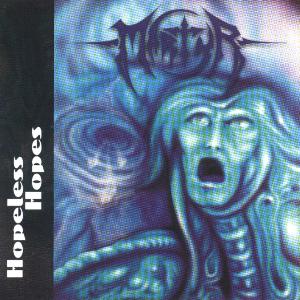 How do you compose songs as a band?
How do you compose songs as a band? If a holy war (crusade vs jihad) breaks out in the Middle East, how do you think it will affect the way most people view metal, and the way most metalheads view religious people?
If a holy war (crusade vs jihad) breaks out in the Middle East, how do you think it will affect the way most people view metal, and the way most metalheads view religious people?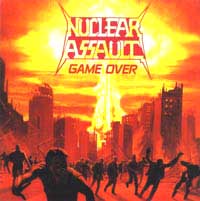 Let’s do a quick overview of my history in metal. Formed Anthrax, got tossed ‘cos Neil Turbin was a prick. Formed N.A. (’84). Played faster, more hardcore-tinged thrash than Anthrax. So far, no trend-jumping, lol. Was invited to do S.O.D., accepted.
Let’s do a quick overview of my history in metal. Formed Anthrax, got tossed ‘cos Neil Turbin was a prick. Formed N.A. (’84). Played faster, more hardcore-tinged thrash than Anthrax. So far, no trend-jumping, lol. Was invited to do S.O.D., accepted. And for kicks: who came up with Mr Softee theme? I’ve driven away neighbors with that one. ICE CREAM!
And for kicks: who came up with Mr Softee theme? I’ve driven away neighbors with that one. ICE CREAM!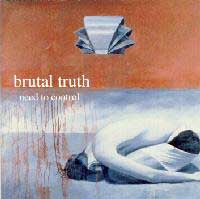 Grindcore is by nature an ideological genre, but once you’re in the general area of protest music style lyrics, most of which are what we could call “leftist” or “anarchist,” you’re part of the club. It seems to me that to many musicians, lyrics are mostly irrelevant. How does this fit into your worldview?
Grindcore is by nature an ideological genre, but once you’re in the general area of protest music style lyrics, most of which are what we could call “leftist” or “anarchist,” you’re part of the club. It seems to me that to many musicians, lyrics are mostly irrelevant. How does this fit into your worldview?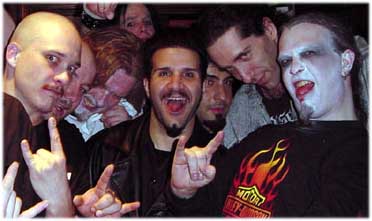
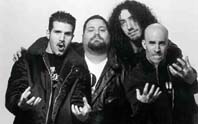
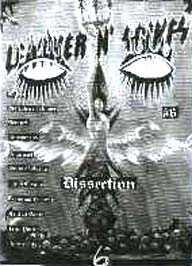 I laughed when I saw the editor of Leather N’ Spikes magazine described somewhere as “metal hottie Nuklear Cath.” She’s a lot more than that: she runs one of the magazines which meets metal ideal in spirit and aesthetic, which idolizes the stuff with potential and doesn’t notice the bands that normal people seem to like. Those people who can’t step outside of their own heads and into the world of metal which supercedes the norm will hate it, but to the rest of us it’s a form of journalism unique to metal itself. After a busy day of piling up the corpses of her victims near a temporarily memorial area, Nuklear Cath was good enough to grant us an interview on the eve of the launch of the new Leather’n’Spikes website.
I laughed when I saw the editor of Leather N’ Spikes magazine described somewhere as “metal hottie Nuklear Cath.” She’s a lot more than that: she runs one of the magazines which meets metal ideal in spirit and aesthetic, which idolizes the stuff with potential and doesn’t notice the bands that normal people seem to like. Those people who can’t step outside of their own heads and into the world of metal which supercedes the norm will hate it, but to the rest of us it’s a form of journalism unique to metal itself. After a busy day of piling up the corpses of her victims near a temporarily memorial area, Nuklear Cath was good enough to grant us an interview on the eve of the launch of the new Leather’n’Spikes website. Contacts: Alex Perialas, Pyramid Sound Andy Adelewitz, PR consultant
Contacts: Alex Perialas, Pyramid Sound Andy Adelewitz, PR consultant
